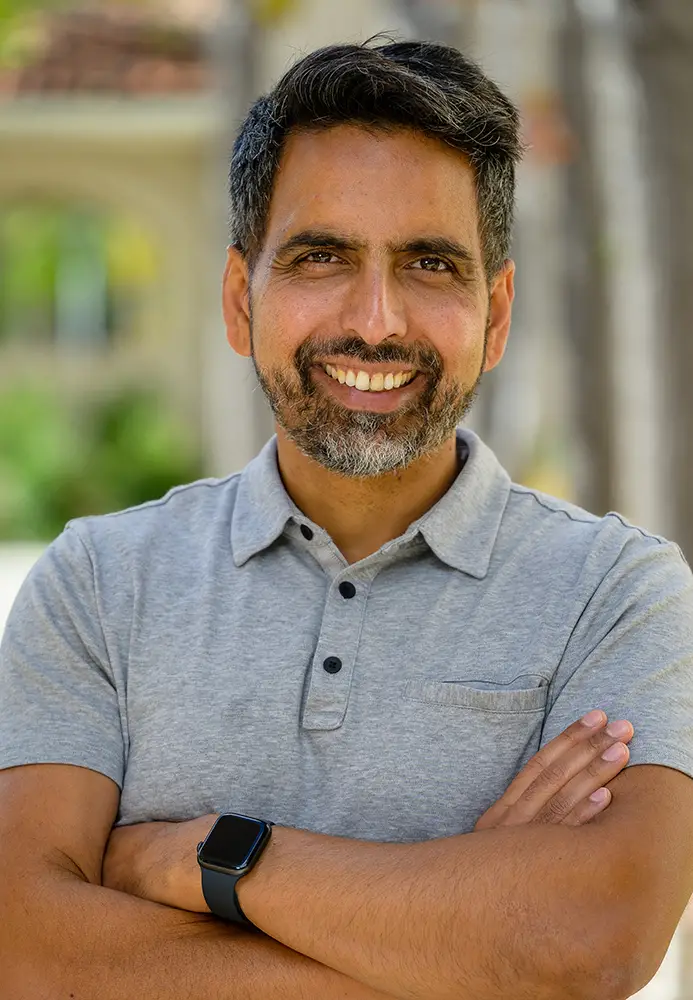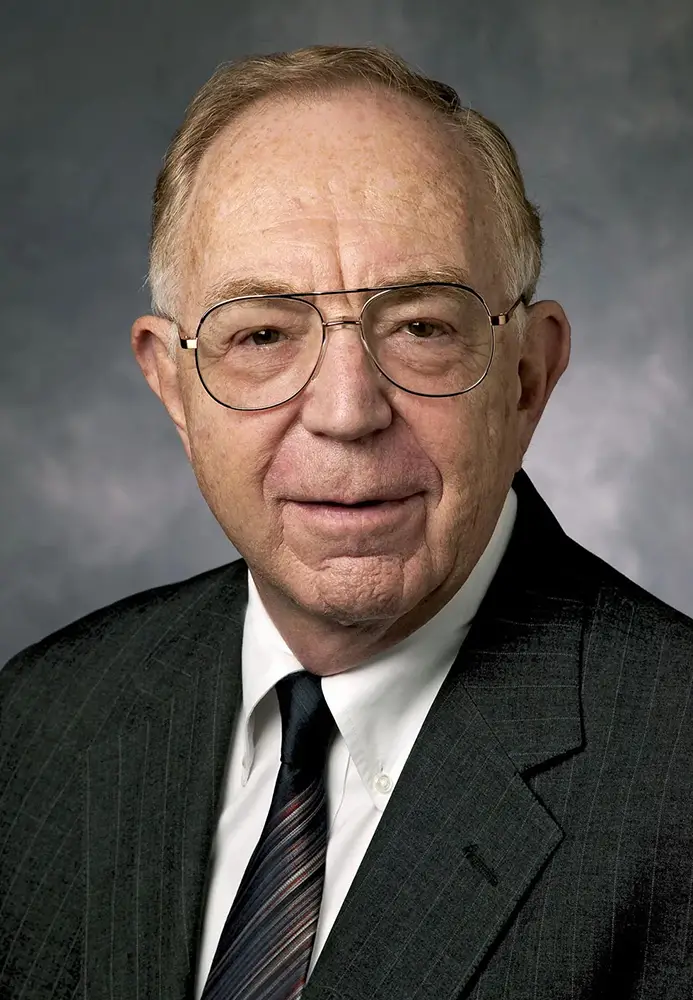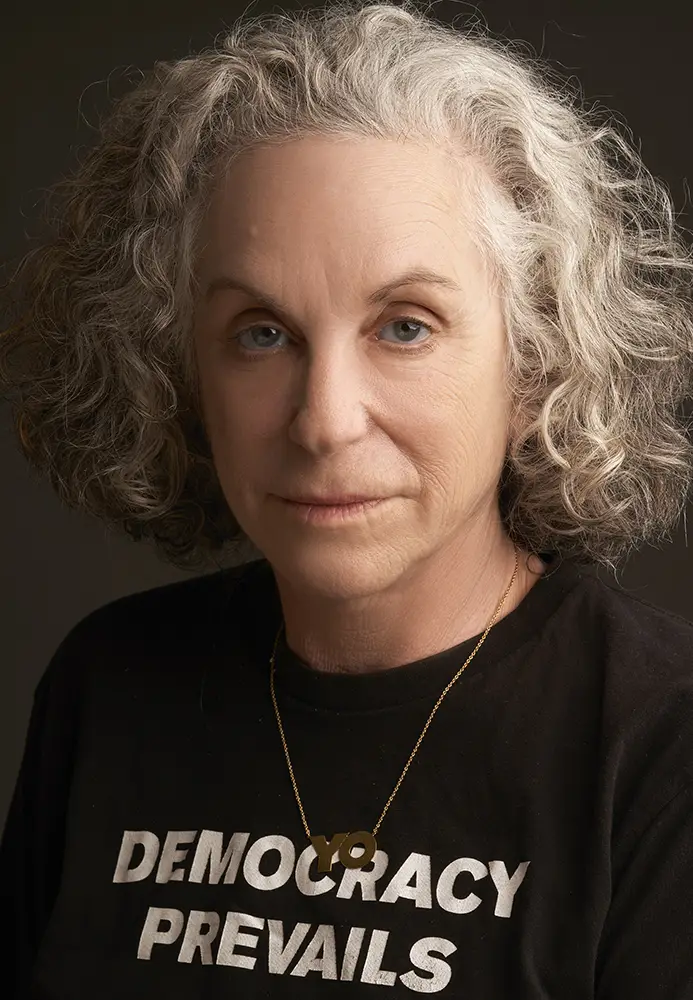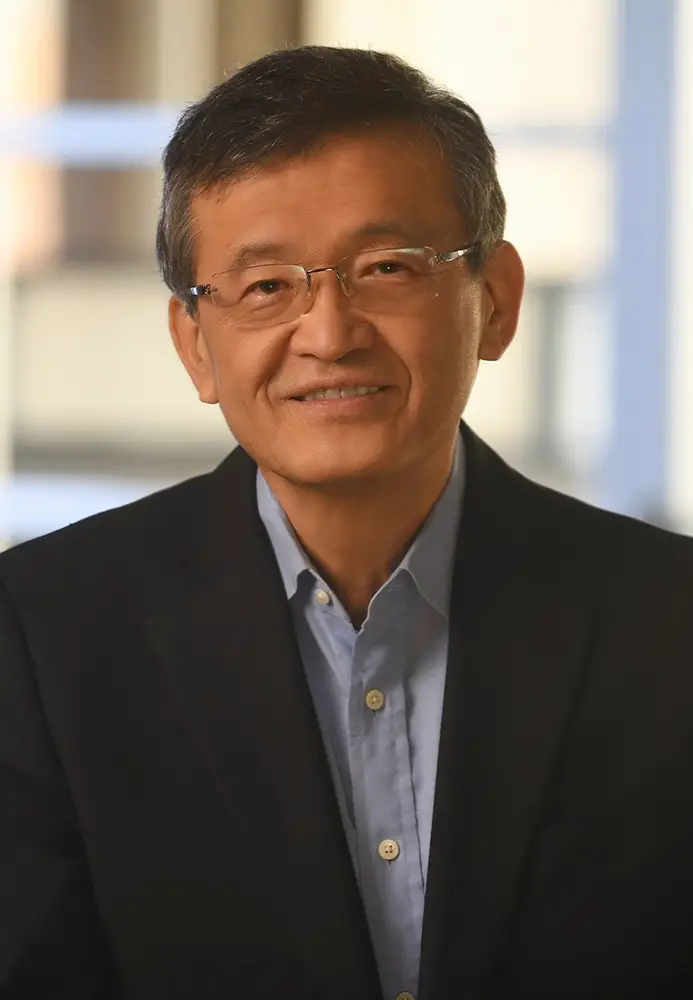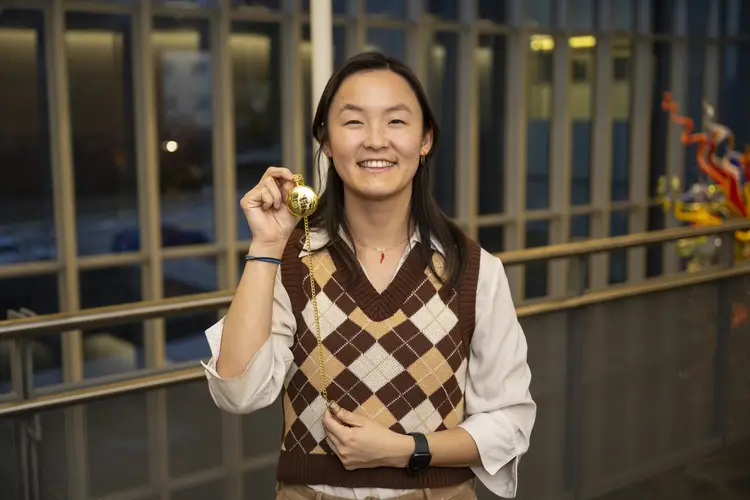
Carnegie Mellon University Announces 2025 Honorary Degree Recipients
Media Inquiries
Carnegie Mellon University will award honorary degrees to four individuals at its 2025 Commencement(opens in new window) ceremony set for Sunday, May 11 in Gesling Stadium. The recipients will be recognized for their contributions to business, the arts, research and engineering.
Sal Khan, the founder and CEO of Khan Academy, will be the Commencement speaker and receive an Honorary Doctor of Humane Letters degree.
“This is a huge milestone in the lives of the students and their families and I’m honored to be a part of it. We are in a time of unprecedented change and uncertainty. I hope I can inspire the graduates to see that the future really is in their hands and they can do incredible good with it,” Khan said.
CMU alumnus Edward Feigenbaum, the Kumagai Professor of Computer Science Emeritus at Stanford University, and Lip-Bu Tan, CEO of Intel Corporation, will also receive Honorary Doctor of Science and Technology degrees. College of Fine Arts alumna Deborah Kass will receive an Honorary Doctor of Fine Arts degree.
“It is a CMU tradition to award honorary degrees to exemplary leaders whose lives and work inspire our community. This year’s recipients have profoundly impacted our world,” said CMU President Farnam Jahanian(opens in new window).
Additionally, Michael Acquaah-Harrison, a 2025 graduate who Poets&Quants recently named one of the Top 100 Best & Brightest Undergraduate Business Students in the nation, will serve as the student speaker at Commencement. Acquaah-Harrison will earn a bachelor’s degree in business administration with a concentration in finance and a minor in innovation and entrepreneurship. He was a four-year student-athlete on the men’s varsity basketball team, a resident assistant and a leader in several business organizations within the Tepper School of Business. He also participated in Carnival traditions, earning first place in the 2023 Sweepstakes competition with the PiKA racing team.
Read more about the 2025 honorary degree recipients(opens in new window).
Sal Khan
Founder and CEO, Khan Academy
Doctor of Humane Letters
Sal Khan is the founder and CEO of Khan Academy, a nonprofit with a bold mission: to provide a free, world-class education for anyone, anywhere. Khan started by tutoring his cousins remotely as a hobby.
Over the past two decades, his efforts have grown into a global learning platform used by more than 180 million registered users in more than 190 countries. Khan Academy offers free interactive exercises, instructional videos and teacher tools across subjects like math, science, writing and SAT prep. The nonprofit is also pioneering AI in education with Khanmigo, an AI tool designed to serve as both a tutor and a teaching assistant. In the United States, Khan Academy partners with more than 450 school districts.
In addition to Khan Academy, Khan also founded three additional educational nonprofits:
- Khan Lab School, an experimental school in California based on the ideas in his book, “The One World Schoolhouse.”
- Schoolhouse.world, which connects students for free, live peer-to-peer tutoring.
- Khan World School, an online school for grades 6 through 12 that brings together students from around the globe.
Khan has been recognized as one of Time magazine’s 100 Most Influential People and featured on 60 Minutes, CNN, The New York Times, The Washington Post, Fox Business and Education Week. In addition to “The One World Schoolhouse,” he is the author of “Brave New Words,” which explores the role of AI in learning and society.
Khan lives in Mountain View, California, with his wife and three children. He holds three degrees from MIT in math, electrical engineering and computer science, plus an MBA from Harvard Business School.
Edward Feigenbaum (ENG 1956, TPR 1960)
Kumagai Professor of Computer Science Emeritus, Stanford University
Doctor of Science and Technology
Edward Feigenbaum is an interdisciplinary computer scientist who pioneered Expert Systems and the knowledge-based approaches to artificial intelligence. He completed his undergraduate degree and doctorate at Carnegie Mellon University.
Mentored by Nobel laureate Herbert Simon, Feigenbaum developed Elementary Perceiver and Memorizer (EPAM), one of the first computer models of human learning, in his thesis.
At Stanford University, he founded the Heuristic Programming Project and Knowledge Systems Laboratory, directed Stanford's Computation Center, and chaired its Computer Science Department.
For his research, he received the 1994 ACM Turing Award, often regarded as the most prestigious award in Computer Science. The citation read, “For pioneering the design and construction of large-scale artificial intelligence systems, demonstrating the practical importance and potential commercial impact of artificial intelligence technology."
He has been elected to both the National Academy of Engineering and the American Academy of Arts and Sciences. The biennial Feigenbaum Prize, established in his honor by the International Conference on Expert Systems, is now awarded by the Association for the Advancement of Artificial Intelligence (AAAI).
From 1994-97, he served at the Pentagon as chief scientist of the Air Force and received the U.S. Air Force Exceptional Civilian Service Award.
He was co-founder of three Silicon Valley startups in the 1980s and also served as a board member of the Sperry Corporation.
He wrote or edited several important books about artificial intelligence and computer technology, including “Computers and Thought,” “The Handbook of Artificial Intelligence” and “The Fifth Generation.”
He served for four years as a member of the board of trustees of the National Library of Medicine. He also served for 12 years as a member of the board of trustees of the prestigious Computer History Museum in Mountain View, California.
Deborah Kass (CFA 1974)
Artist
Doctor of Fine Arts
Deborah Kass is an artist whose work examines the intersection of art history, popular culture and the self.
Kass’ work is in the permanent collections of The Metropolitan Museum of Art, MoMA, Whitney Museum of Art, Guggenheim Museum, Jewish Museum, Museum of Fine Art, Boston, National Portrait Gallery, Smithsonian Institution, Fogg/Harvard Museum, The Dallas Museum of Art, as well as numerous other museums and private collections. It has been shown nationally and internationally, including at the Venice Biennale, the Istanbul Biennale and the Museum Ludwig, Cologne.
Kass’ beloved monumental sculpture OY/YO is permanently installed in front of the Brooklyn Museum, the Cantor Arts Center at Stanford University and the Weitzman Museum of American Jewish History in Philadelphia.
The Andy Warhol Museum presented "Deborah Kass: Before and Happily Ever After, A Mid-Career Retrospective” in 2012 with a catalogue published by Rizzoli with essays by Griselda Pollock, Irving Sandler, Robert Storr and John Waters, among others. Linda Nochlin, Robert Rosenblum and Maurice Berger have written extensively on her work.
In 2024, Kass was honored by the Albert Einstein Montefiore Women’s Committee Trailblazer award. In 2021 she received the Alumni Achievement Award from Carnegie Mellon University. In 2018, she was inducted into The National Academy and was named the cultural honoree at The Jewish Museum in 2017. She was honored in 2016 with the Passionate Artist Award by the Neuberger Museum of Art, and in 2014 she was inducted into the New York Foundation for the Arts Hall of Fame.
She has served on the boards of the Sharpe Walentas Studio Program and the Andy Warhol Foundation.
Lip-Bu Tan
CEO, Intel Corporation
Doctor of Science and Technology
Lip-Bu Tan is founder and chairman of Walden International and founding managing partner of Celesta Capital and Walden Catalyst Ventures, managing more than $5 billion. He concurrently serves as the CEO of Intel Corporation, where he was a member of the board from June 2021 to August 2024. Previously, he was CEO and executive chairman of Cadence Design Systems Inc. Tan is on the Board of Intel Corp., Schneider Electric, and Credo Semiconductor.
With more than 35 years of venture capital experience, Tan focuses on semiconductor, cloud infrastructure, data management, security and AI. His notable investments include Aquantia Corp., Ambarella, Astera Labs, Annapurna Labs (acquired by Amazon), Credo Semiconductor, Inphi, Databricks, Perplexity and Together.ai.
Tan received a bachelor’s degree from Nanyang University in Singapore, a master’s in nuclear engineering from MIT and an MBA from the University of San Francisco. He also received an honorary Doctor of Humane Letters from the University of San Francisco.
He currently serves on the Board of Trustees of Carnegie Mellon University, the School of Engineering Dean’s Advisory Council of MIT, the College of Engineering Advisory Board of UC Berkeley and the Executive Council of UC San Francisco, and is a member of The Business Council.
Tan has been named one of the Top 10 Venture Capitalists in China by Zero2ipo and one of the Top 50 Venture Capitalists on the Forbes Midas List. He received imec’s 2023 Lifetime of Innovation Award, the Semiconductor Industry Association 2022 Robert N. Noyce Award and Global Semiconductor Alliance’s 2016 Dr. Morris Chang's Exemplary Leadership Award. In 2017, he was ranked the most well-connected executive in the technology industry by Relationship Science. He is also an Elder of First Presbyterian Church of Berkeley.
